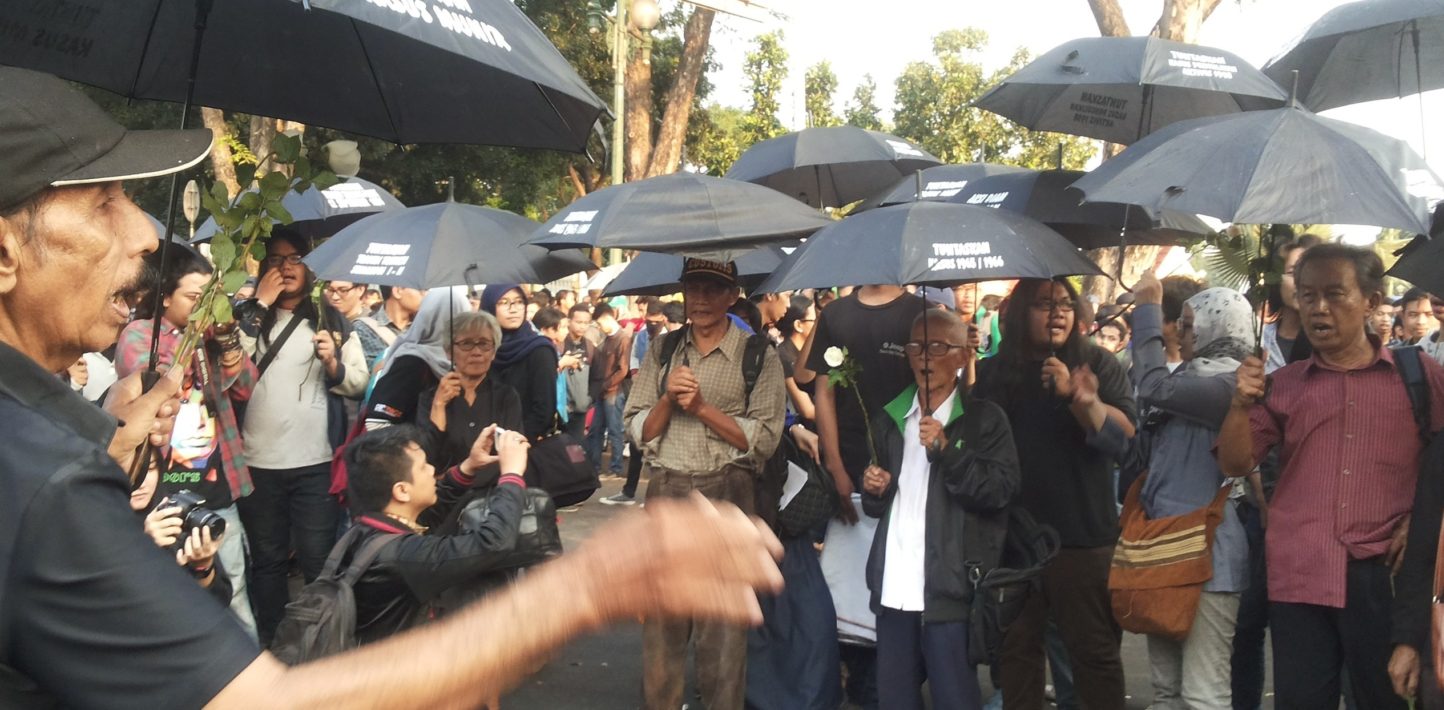Indonesian authorities are abandoning millions of victims and their family members who suffered through one of the worst mass killings in modern times, Amnesty International said on the 50th anniversary of the events that triggered the government-led atrocities of 1965 and 1966.
“Five decades is far too long to wait for justice for one of the worst mass killings of our era. Across Indonesia, victims of the 1965 and 1966 events and their family members have been left to fend for themselves, while those suspected of criminal responsibility walk free,” said Papang Hidayat, Amnesty International’s Indonesia Researcher.
“Indonesian authorities must put an end to this injustice once and for all. Today’s anniversary must be the starting point for a new era where crimes of the past are no longer swept under the carpet.”
In the wake of a failed coup attempt on 30 September 1965, the Indonesian military – led by Major General Suharto – launched a systematic attack against suspected communists and a range of other leftists.
Indonesian authorities must put an end to this injustice once and for all. Today’s anniversary must be the starting point for a new era where crimes of the past are no longer swept under the carpet.
Papang Hidayat, Amnesty International's Indonesia Researcher
Over the following two years, anywhere between 500,000 and one million people were killed. Sexual violence was rampant with countless women raped or kept as sexual slaves. Hundreds of thousands of people were imprisoned without trial – many spent years in jail, suffering regular torture.
Efforts by Indonesian authorities to get to the truth of these events and provide victims and family members with justice and reparations have been piecemeal at best.
In Indonesia, there remains a lack of accountability for crimes under international law. In very few cases have perpetrators been brought to trial and the overwhelming majority walk free.
A chilling culture of silence has prevailed in Indonesia where even discussing the killings of 50 years ago has been largely impossible for victims, let alone demanding the reparation or access to truth and justice that they are entitled to under international law.
Although space for dialogue has opened up in recent years, victims continue to face discrimination in law and practice. Internal meetings or public events organized by victims about the 1965 events have often been disbanded by the authorities or broken up by vigilante groups with police doing nothing to prevent the harassment.
“Far too many brave activists and survivors have faced harassment, intimidation and threats to expose the mass crimes of 50 years ago. Authorities must start listening to the human rights community, not suppressing their voices,” said Papang Hidayat.
In July 2012, the Indonesian national human rights commission Komnas HAM published a devastating report into the killings that found evidence of crimes against humanity by the security forces and non-state actors.
But despite urging the Attorney General’s office to act on its findings and launch judicial investigations, to date nothing has happened. Meanwhile attempts to establish a truth commission on the national level have stalled due to a lack of political will.
Since taking office in October 2014, President Joko “Jokowi” Widodo has promised to make human rights a priority and to address crimes of the past.
In May 2015, the government announced a non-judicial mechanism to resolve past human rights abuses, including the killings of 1965. But without powers to prosecute, there are serious concerns that this will prioritize reconciliation over truth and justice, and let the worst perpetrators walk free.
“President Widodo has a golden opportunity to use his mandate to ensure that the past is no longer forgotten in Indonesia. This is a country that is quickly emerging as a regional leader – it must takes this position seriously and set an example when it comes to justice, truth and reparations,” said Papang Hidayat.


